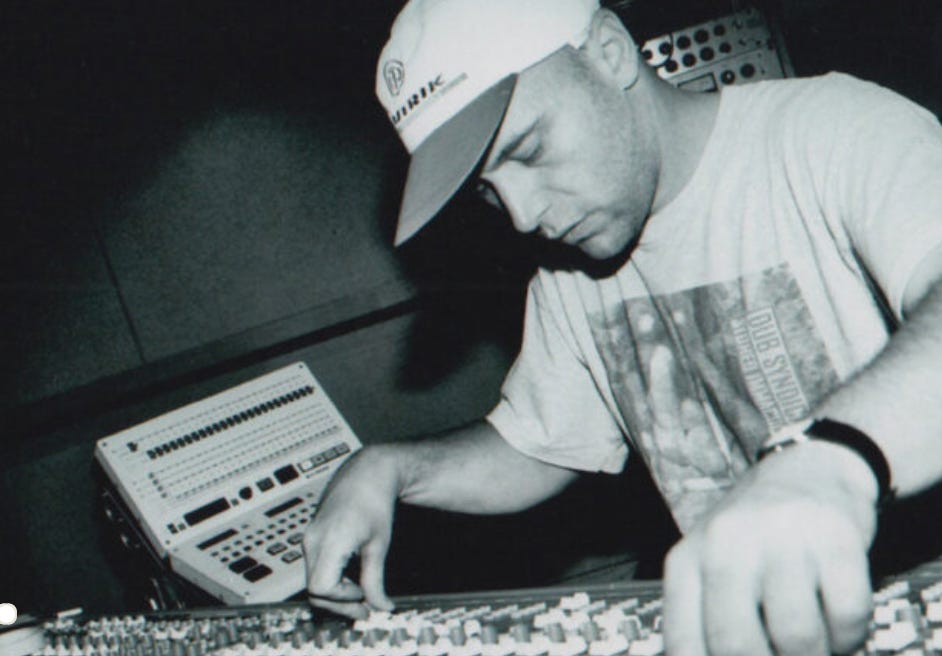Slamdance Cosmopolis
“The world is full of magic things, patiently waiting for our senses to grow sharper.” ― W.B. Yeats
I came across an article yesterday that marked the 40th anniversary of The Clash’s Combat Rock, talking with ex-band members Mick Jones and Paul Simonon about the record. The article came out in May, and somehow I managed to miss the whole celebration of a record that meant a hell of a lot to me when it was released. Combat Rock was a HUGE record in my life, coming out when I was thirteen years old—I was already a fan of the Clash (thanks to my older brother), ready and waiting with anticipation when I grabbed a copy at the local record store and ran home to throw it on the stereo system.
Combat Rock was The Clash’s major US commercial breakthrough. Riding on the early wave of MTV goodness, the videos for Rock The Casbah and Should I Stay Or Should I Go were ever present post-record release, with the songs being the soundtrack for my summer. And with their commercial breakthrough, came the various accusations from the press and other critics that The Clash were now a commercial band, not a punk band. But that storyline had gone with them ever since they had signed their first major label deal for their debut record…and when they brought on Blue Oyster Cult’s producer Sandy Robertson (RIP, my friend) for their second record…and when they started dabbling in different sounds beyond the 1-2-3-4 Ramones-influenced punk.
But the Clash’s ability to hit the mainstream was really their genius at breaking down the foundation of AOR boredom that punk was reacting against in the first place.
Combat Rock: from the first guitar daggers of opening track Know Your Rights, it was electric mayhem.
This is a public service announcement...with guitar!"
The song shot out of my speakers like a tidal wave, with Joe Strummer counting down the hypocrisies of living under a free government that was not as free as it seemed. I soon pinned up a Clash poster with those words, KNOW YOUR RIGHTS, yelling through its center…and that poster stayed above my bed til well after I had gone to college. For a newly minted teenager, The Clash’s rebellion was perfect, the more perfect the louder I played it.
Combat Rock was also my first encounter with poet Allen Ginsberg, who plays the omniscient voice in the deep cut, Ghetto Defendant. His haunting narration, and his dystopian words, at first scared me…then entranced me triggering a trip to the library to learn more.
Starved in metropolis
Hooked on necropolis
Addict of metropolis
Do the worm on the accropolis
Slamdance (the) cosmopolis
There are so many incredible songs on Combat Rock: Car Jamming, Straight To Hell, Atom Tan (which I never thought got enough notice)…the final smoke-filled jazz club of Death Is A Star…the record continued to find the band consistently trying new musical styles and pushing their boundaries. They were on top of their game…touring with The Who (Mom, Dad—WHY DIDN’T YOU LET ME GO TO THE SHOW?!?) without any indication that it was to be their last record (sorry folks, Cut The Crap, without Mick Jones, was not a Clash record). Say it ain’t so Joe, say you didn’t fire your partner?
Combat Rock seems to be an underdog of the Clash’s catalog, eclipsed by the first record and by London Calling (which might have been their best). But as a kid who was too young too appreciate either of those records when they first came out, Combat Rock was my first experience at loving a Clash record as it was released, and it blew my mind…blew my mind 40 years ago.
How a Supreme Court Case About Andy Warhol’s Paintings of Prince Could Reshape Freedom of Expression
“This week, the U.S. Supreme Court will hear a case centered on an art question with few easy answers: Did Andy Warhol violate photographer Lynn Goldsmith’s copyright when he used her photograph of the music legend Prince as the basis for a series of portraits?”
WB Yeats and Aleister Crowley once battled each other in an epic real-life magical duel
Like the author of this fascinating Boing Boing piece, I had know idea about the “Battle of Blythe Road” or even that Yeats and Crowley knew each other. The video at the center of the article is a fascinating watch….and it is nice to know (spoiler alert) that Yeats came out victorious!
‘Round About Midnight: A Conversation With Adrian Sherwood
Adrian Sherwood made such a huge splash at KUSF with his Tackhead Sound System/On-U Sound, blowing minds when they came to the I-Beam in San Francisco, with Sherwood providing a live-mixing spectacle against the backdrop of his live band. Sherwood has since gone on to produce/mix/chemist a range of incredible projects, most recently with reggae legend Horace Andy for Andy’s newest release Midnight Scorchers. It is fantastic to see Andy still in great form and Sherwood helping put together a truly fresh, exciting soundscape for him. I worked with Sherwood many moons ago on Shane MacGowan’s Crock of Gold record. Just a great guy. And this new Horace Andy record is a great listening experience.
Rachel Carson’s ‘Silent Spring’ at 60
“In 1962 environmental scientist Rachel Carson published “Silent Spring,” a bestselling book that asserted that overuse of pesticides was harming the environment and threatening human health…'Silent Spring' is widely viewed as an inspiration for the modern environmental movement.” This article is a combination articles from the archives of The Conversation looking at “ongoing questions about pesticides and their effects.”
“(Michelle Young) looks to the lessons of art preservation efforts of World War II to understand what might be possible for Ukraine's treasures.”
Like Most Revelations
By: Richard Howard
It is the movement that incites the form,
discovered as a downward rapture--yes,
it is the movement that delights the form,
sustained by its own velocity.And yet
it is the movement that delays the form
while darkness slows and encumbers; in fact
it is the movement that betrays the form,
baffled in such toils of ease, until
it is the movement that deceives the form,
beguiling our attention--we supposed
it is the movement that achieves the form.
Were we mistaken?What does it matter if
it is the movement that negates the form?
Even though we give (give up) ourselves
to this mortal process of continuing,
it is the movement that creates the form.
****Does anyone read this far? Notice the ever changing button at the bottom of the newsletter that leads to even more surprises? Todays in honor of Art Tatum on his birthday?











